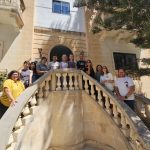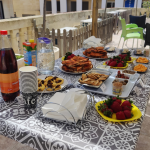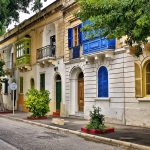 Explore Malta After Class: A Student’s Guide to Unmissable Destinations
Explore Malta After Class: A Student’s Guide to Unmissable Destinations
 The Ultimate Guide to Choosing the Right English Course in Malta
The Ultimate Guide to Choosing the Right English Course in Malta
 6 Reasons Why Malta is the Perfect Destination to Learn English
6 Reasons Why Malta is the Perfect Destination to Learn English
 Malta’s Culinary Delights: A Journey Through Local Cuisine
Malta’s Culinary Delights: A Journey Through Local Cuisine
 WHAT WOULD YOU LIKE TO KNOW ABOUT MALTA?
WHAT WOULD YOU LIKE TO KNOW ABOUT MALTA?